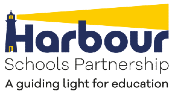Curriculum
A curriculum is never finished.
We continue to reflect, revise, plan and deliver a curriculum which considers the following important elements:
-
Knowledge
Knowledge is undeniably important in life. Knowledge is what we think about and, crucially, what we think with. The more you know, the better you can think.
Our curriculum is therefore built around powerful, culturally-rich knowledge; knowledge that is, and has been, valued by society, generation after generation. Our curriculum focuses on ‘the best that has been thought and said’.
The implication of this is that our curriculum ensures that students are supported to commit relevant knowledge to their long-term memory. The benefits of this are twofold. Firstly, the capacity to retrieve relevant prior knowledge makes it possible for students to focus on higher-level thinking in their work. Secondly, knowledge is generative. This is to say, once a student has learnt a few pieces of information, and they are supported in seeing the connections between them, they are able to build up a network of this connected information as a schema. In doing so, it becomes easier for them to add new information and recognise its place within a discipline: new knowledge can ‘stick’ to old knowledge
-
Cultural Capital: We recognise the role that cultural knowledge plays in our lives. Cultural knowledge opens the door to a world beyond our own individual experiences; it gives us a larger world view.
Through knowing and understanding some of what the greatest minds have thought and said, our own minds are opened up. Cultural capital develops our ability to understand, to reason and to critique; it sparks our imagination and hones our judgement. By building our curriculum around powerful, culturally-rich knowledge our pupils are encouraged to think about concepts beyond their experience of daily life; it is liberating and life-changing.
-
Vocabulary and Oracy: The coherence of our curriculum involves a strong focus on vocabulary. We think with words; words are the building blocks of knowledge.
Conceptual understanding and vocabulary run in tandem with each other: for example, you cannot learn about democracy or rock formation without also learning the subject-specific words associated with these topics. Our focus on vocabulary therefore allows students to become increasingly nuanced in their thinking.
Alongside the understanding of vocabulary, pupils need the skills to communicate their thinking. Therefore, the teaching of oracy lies at the heart of our classroom practice. Oracy can be seen as an outcome, whereby students learn to talk confidently, appropriately and sensitively. Being able to reason, debate and articulate their thinking is a higher-order cognitive skill and enables our students to embed and master complex learning. Development of oracy has not only cognitive gains, but also personal and social gains, as well as civic engagement and empowerment.
-
Outcomes: Learning can be defined, in part, as ‘a change in long term memory'. For this reason, we recognise that effective teaching is not tied to a single lesson but, rather, what students remember, understand and apply from the curriculum over the long-term.
Knowledge builds on knowledge. Therefore, our curriculum is sequenced cumulatively, always building upon prior knowledge. Summative assessments are, accordingly, cumulative. Therefore, our learning sequences lead towards an outcome through a cumulative learning sequence which spans across subject domains. Our cumulative curriculum makes connections explicit - connections to prior learning and connections across subject domains- making it easier for our pupils to recall, understand and apply knowledge. Leading towards an outcome, provides an ambitious purpose, focus, and time scale for the acquisition of knowledge and skills; focusing on the cumulation and application.
-
Ambition: Our commitment to academic challenge means that we hold the highest aspirations for all our pupils. This ambition is a constant through every aspect of our curriculum: from developing meaningful and purposeful learning experiences with our curriculum design to the level of engagement we aim for all of our children to show within a learning sequence. We encourage our teachers to take risks with their teaching; to make links and experiences that will resonate with our children for years to come.
Our curriculum covers all the elements of the statutory National Curriculum while enabling all our children to develop into the best that they can be.




